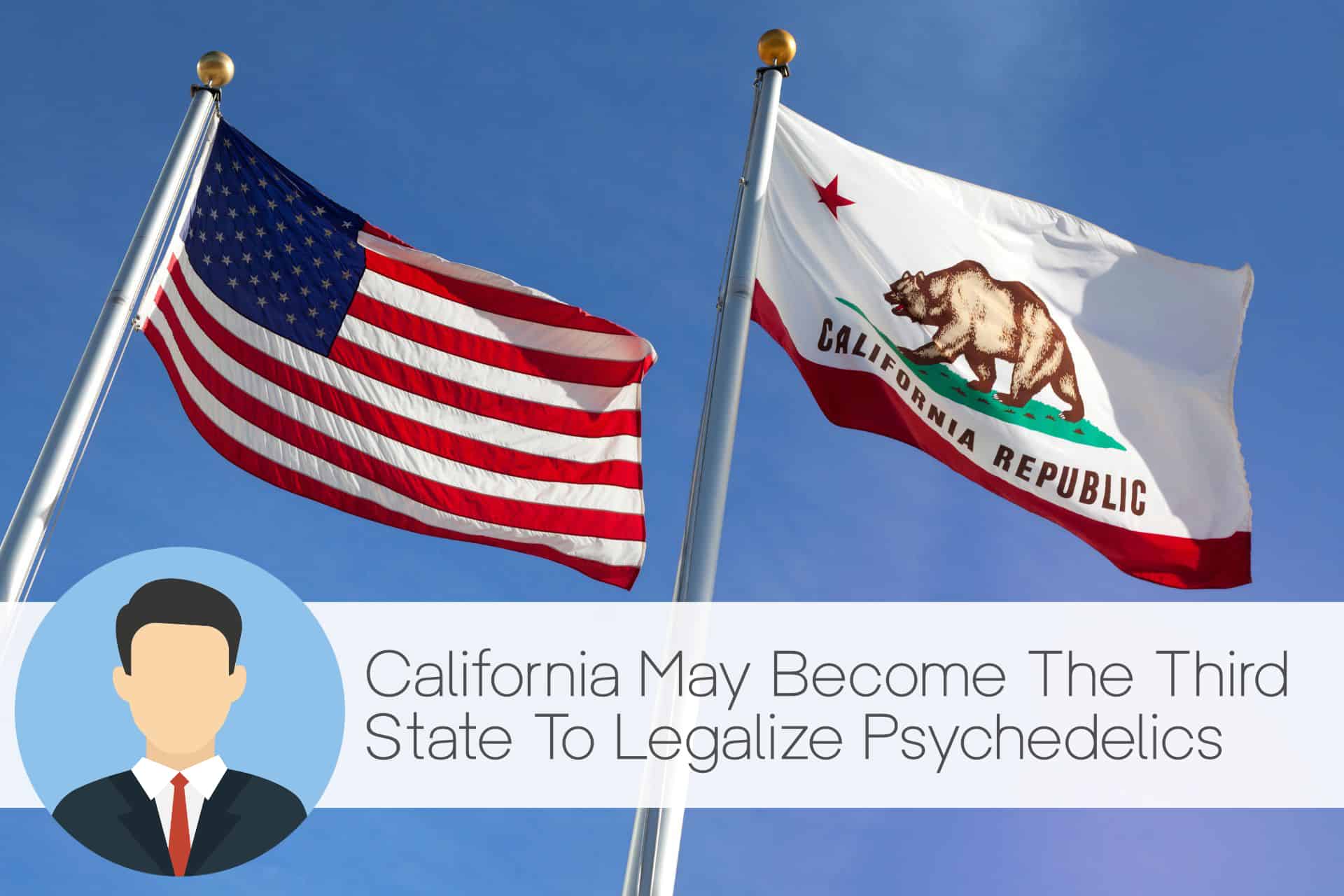California May Become the Third State to Legalize Psychedelics
California is on its way toward joining two other U.S. states that, in one way or another, have legalized psychedelic substances. Senate Bill 58 passed the California Senate in May and is now in the State Assembly. But what is considered a psychedelic substance? Why is there a push to legalize these substances, not only in California but in other states? Let’s look at some of the specifics.
Senate Bill 58: What It Is and What It Means
Introduced by Sen. Scott Wiener, Senate Bill 58 would allow adults over 21 years old to cultivate, possess, distribute, transport, and sell psilocybin and other substances that are considered psychedelic.
Psychedelics is a general term that refers to any of a number of substances that are psychoactive, meaning they interact with the brain to cause changes in cognitive processes, mood, and perception. Psychedelics can cause hallucinations that can last for seconds or minutes, or even longer depending on the substance. More recently, researchers have been looking into the medical uses of psychedelics in the mental health and addiction treatment fields.
Many substances that are considered psychedelic are naturally occurring, such as psilocybin or psilocin, which are spores that produce mushrooms. Bill 58 also specifies legalizing dimethyltryptamine (DMT), ibogaine, and mescaline. Mescaline is derived from the peyote cactus, but it is not the same thing as peyote. Pointedly, the bill does not include the peyote cactus because it is almost endangered and is also considered a sacred plant by some Indigenous people groups.
DMT is a naturally occurring tryptamine that has also been used ritually by Native American groups. Similarly, ibogaine is another psychedelic that is naturally derived. Bill 58, should it become law, would limit its focus to these substances. There are many other psychedelic substances, such as ayahuasca and toad venom, that are growing in use but are excluded from the bill.
The Push to Legalize Psychedelics
If Bill 58 is your introduction to the push to legalize psychedelics, you may be baffled. Why psychedelics? And why now? Let’s look at some history.
In November 2020, Oregon became the first state to legalize psilocybin. Two years later, Colorado followed, and now California is poised to do the same. If Bill 58 passes the State Assembly, Gov. Gavin Newsom could sign it into law.
California would become the third state to do so, in a long line of states that have considered or are considering similar laws. According to JAMA Psychiatry, half of the states in the U.S. have considered a total of 74 bills since 2019, with 32 of them still active. Oregon undoubtedly sparked increased interest in this kind of legislation. Six bills were introduced in 2020, the year Oregon legalized psilocybin. The following year, 27 bills were introduced across the nation with another 36 in 2022.
The Oregon law is pioneering what is generally considered strict oversight of the manufacture and sale of psilocybin by the Oregon Health Authority (OHA). People who want to own a psilocybin business will have to obtain four licenses for manufacture, laboratories, service centers, and facilitators.
The proposed California law will probably not pose such a level of oversight. According to the Legislative Analyst’s Office (LAO) of California, the regulation of psilocybin would be handled by the California Department of Food and Agriculture in a manner roughly equivalent to non-psychoactive mushrooms. Cultivation and sale of psilocybin could begin as soon as January 1, 2025.
Why Legalize Psychedelics?
It is important to note that, irrespective of state laws, psilocybin, like marijuana, is a Schedule I substance according to the Controlled Substance Act. That means, according to the U.S. Drug Enforcement Administration, it has no medical value and a high potential for abuse.
Psilocybin is also similar to marijuana in that it too is riding to legalization on a wave of research that indicates, contrary to the DEA, the psychoactive drug’s viability for medical use. Researchers are indicating that psilocybin can be a valuable treatment option for mental health disorders such as depression, anxiety disorders, and post-traumatic stress disorder (PTSD).
Studies are also showing that the psychedelic substance ibogaine is, ironically, a viable treatment option for addiction. According to a study published in the American Journal of Drug and Alcohol Abuse, ibogaine shows considerable promise in treating opioid use disorder. Time Magazine also recently published an article outlining how veterans and other people suffering from PTSD and addiction are finding relief at international ibogaine treatment centers.
With the promise that psychedelic substances show for mental health and addiction treatment, it is easy to see why there is a push to legalize psychedelics through bills that are being considered in both liberal and conservative states.
Conclusion
How this all will play out is, of course, another matter. 2023 is the year that businesses in Oregon can begin selling psilocybin, so many people will be watching to see how OHA interacts with these businesses. Similarly, if psilocybin and other psychedelic substances become legal in California, this state will be closely watched come 2025. With mental health conditions like addiction on the rise, the impact that psychedelics legalization has could be significant.









